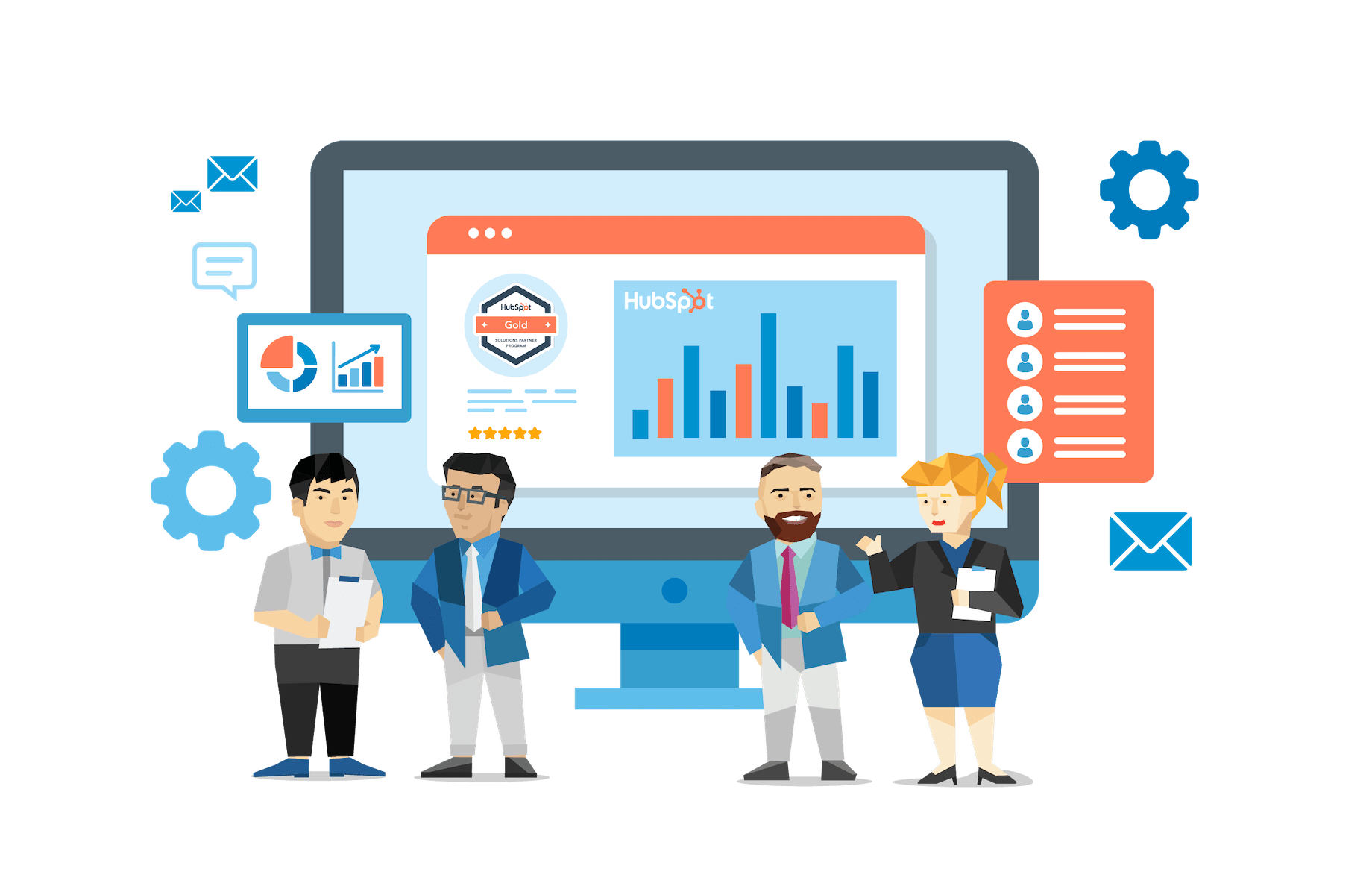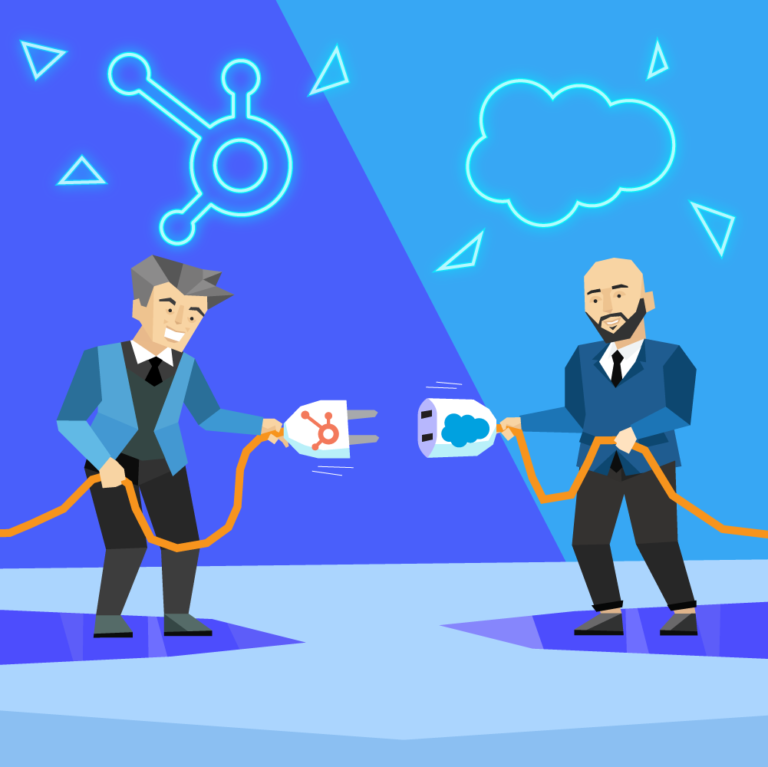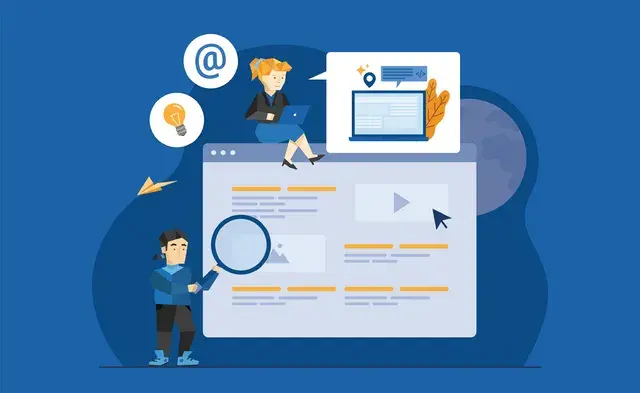Our Inbound Sales Consultants Will Get Your Sales Team Modernized
While outbound sales are still effective, they are nowhere near as successful as inbound sales. Inbound sales are achieved through the positioning of your brand to be found by your target audience and through the nurturing of your leads. As you can imagine, this makes inbound a much more involved process than outbound, which typically involves cold calling or cold emailing potential leads off of a list with no nurturing whatsoever.
If you’re not focusing the majority of your resources on inbound sales, then you will not see nearly the amount of success that you could. Here at Paradox Marketing, our inbound sales consultants can help to modernize your sales process by helping you to implement an effective inbound sales strategy.
What Is Inbound Sales?
Inbound sales occur once your leads have already been nurtured through the first few stages of the buyer’s journey. Most of your leads will have perused your website or social channel in search of general information about their problem or challenge, the solution you offer, and your brand.
Once they’ve decided to engage, whether it’s through social media or your website (such as by filling out a form for a free estimate), and have had contact with your reps, then you can reach out to them. In some cases, you may not have to call them–they will call you. However, this is the result of having been nurtured via their interaction with your social presence or through the content living on your site.
Put simply, inbound sales result from actions taken by your leads, whereas outbound sales occur when you engage with leads who have not taken any action to engage with your brand (and may not even be familiar with your brand). The main difference is that inbound sales result from the established interest that leads have shown, whereas outbound sales occur without that interest.
We Work Towards Establishing Clearer Alignment Between Sales And Marketing
Improving your ability to close inbound sales depends on the close alignment between your sales and marketing divisions. Because marketing and sales are considered separate, there tends to be a serious disconnect between the two. No one will close sales without marketing efforts, but if nobody is closing sales, then your marketing efforts are a waste. The two depend on one another, which is why they need to be properly aligned.
Sales And Marketing Integration
The alignment between marketing and sales is often referred to as “smarketing.” Smarketing is achieved through the continuous and direct communication between your marketing and sales personnel. Here are some of the different aspects that we focus on to create an effective integration strategy:
Service Level Agreements
A traditional service level agreement defines exactly what services you will provide to your customers. A smarketing service level agreement is a little bit different. It’s an agreement held between your marketing and sales teams that defines and details what your marketing team’s goals are and how your sales team will follow those goals and support them.
For example, the agreement may outline the number of leads the marketing team is aiming to generate. If this is the case, then the agreement should also outline how the sales team will follow up on those leads. A smarketing service level agreement allows your marketing and sales teams to commit to supporting each other based on concrete, measurable goals.
Unified Terminology
One of the common factors that thwarts the ability of a marketing team to communicate effectively with the sales team is a lack of unified terminology. If your personnel isn’t speaking the same language,not only will this make it hard to communicate, but it can result in miscommunication that can cause inefficiencies in your inbound sales process.
For example, is a visitor who signed up to your email list a “lead” or a “prospect?” They may seem interchangeable, but if you’re using both these terms to describe the same thing, your sales and marketing teams won’t know who they’re talking about when they’re attempting to communicate.
We will establish standard terminology to be used by your marketing and sales teams to avoid any miscommunication between the departments.
Greater Communication Between the Two Departments
Having a written service level agreement and using unified terminology won’t solve everything. These two tactics will certainly help smooth out some of the communication issues between your marketing and sales teams. But we’ll also focus on improving and strengthening the lines of communication between your marketing and sales teams. This can be done through:
- Holding regular meetings – In businesses where there’s a serious lack of communication between marketing and sales teams, personnel from these departments rarely interact. Hold a weekly meeting that requires your marketing and sales personnel to be in the same room together. Allow them to get to know one another and discuss how each department’s goals affect each other. By forcing them to interact, they’ll feel more comfortable around one another, which will help make it easier for them to communicate clearly.
- Sharing insight – Encourage your marketing and sales teams to share insight that they may have about one another. For example, if your marketing team shares information that they have on specific buyer habits, it can help your sales team better understand what’s driving them, making it easier to close sales.
- Sharing specific challenges – If your sales team is having difficulty with a specific type of lead or process, letting your marketing team know could allow your marketing team to find a solution. Make sure both departments are encouraged to share specific challenges that they are having as they can help each other solve these challenges.
Shared Content Resources
Your sales team uses content to help nurture their leads through the sales funnel. If your marketing team isn’t providing the right type of content, your sales team won’t be able to do this. And if your marketing team is unaware that the content they’re creating isn’t being used, then they are wasting valuable resources. Ensuring that your marketing and sales teams have access to shared content resources helps to keep them on the same page.
What is the difference between inbound sales consulting and normal sales coaching?
We are not sales coaches, we are inbound sales consultants. Businesses hire sales coaches to work with their sales team on an individual basis. A sales coach provides individual sales training. As inbound sales consultants, we are more concerned with helping to improve your overall sales process. We do this by focusing on these areas:
System Wide Solutions & Processes
We will evaluate what systems and processes you have in place and determine problem areas that need to be addressed or areas that can be improved. For example, if your marketing team is generating a significant amount of leads that your sales team seems to be having trouble converting, then there’s a possibility that your sales team is having problems identifying the quality of the leads being generated. We may recommend that you implement a lead scoring system to help identify what leads are further towards the bottom of the sales funnel to help improve conversions.
Utilizing Collaborative Technology
Instead of training marketing and sales personnel individually, we will identify ways in which they can more effectively collaborate with one another to eliminate the disconnect and reduce miscommunication between your teams. For example, we may pinpoint ways to improve your CRM software and to ensure that both marketing and sales personnel have access to its data.
We Integrate With Your Teams
Our goal is to integrate with your teams, improve areas that can drive results and leave you with the playbooks your team can follow. We want to take your foundation and improve upon it, rather than disrupting your organization and starting from scratch. We know that disruption is an impediment to progress and work to minimize disruption while maximizing improvements.















